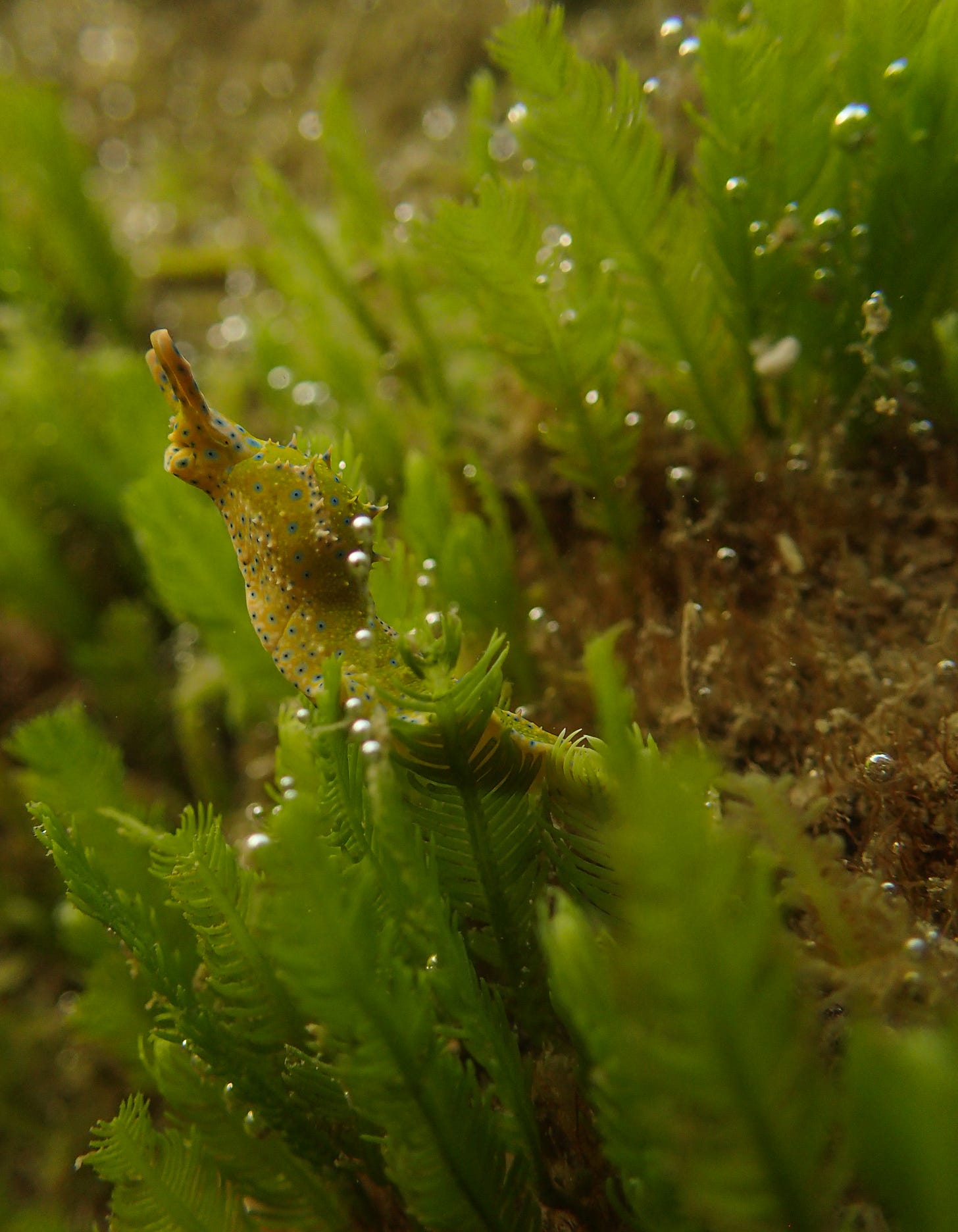The decline of biodiversity, Shackleton's Endurance, and Cambodian citizen science
Big Blue Bulletin #31
Welcome to the latest edition of the Big Blue Bulletin – a weekly roundup of marine conservation news and updates. Expect good news, bad news, and a cute creature in your inbox every Friday.
Let’s dive in 🐬
Ocean news
🗞️ Big news of the week -
A new Living Planet Report was published by WWF this week revealing that wildlife populations have declined by a staggering 73% since 1970. This network of living things is what makes the world go round, providing us with the water we drink, the air we breathe and the food we eat. Without animals, plants, and microorganisms each playing their part, there’s no us.
Whales sequester carbon from the atmosphere. Sharks, as apex predators, keep the ocean healthy by maintaining prey populations. Through pollination, bees support the food chain from the bottom up, from other insects and birds, to bats and mammals. Even pangolins have a part to play, eating millions of ants and termites every year, keeping populations in check and helping to maintain precious forest areas.
It’s time we started valuing the natural world above all else.
🇦🇺 Scientists challenge Australia's ocean protection claims
“Australian scientists have challenged environment minister's claims of 'world-leading' ocean protection for being 'misleading' and a 'missed rare opportunity to protect globally important feeding grounds for marine life including penguins, seals, and albatross.'"
⚓ Explorer Shackleton’s lost ship as never seen before
“After more than 100 years hidden in the icy waters of Antarctica, Sir Ernest Shackleton’s ship Endurance has been revealed in extraordinary 3D detail.”
🇰🇭 Cambodian fishers-turned-citizen scientists monitor marine mammal deaths
“In Cambodia, the NGO Khmer Ocean Life has trained residents of coastal fishing communities about threats to marine mammals so they can participate in a citizen scientist network aimed at tracking bycatch and strandings.”
🏞️ Climate warning as world’s rivers dry up at fastest rate for 30 years
“World Meteorological Organization says water is ‘canary in the coalmine of climate change’ and calls for urgent action.”
🇦🇶 Believe it or not, this lush landscape is Antarctica
“Vegetation is spreading at an alarming rate in a place where temperatures are soaring.”
🐢 How satellites are mapping the future of turtle conservation
“Marine turtles spend almost their entire lives at sea – but little is known about the paths they take. Now, satellites are helping scientists map their movements during the "lost years".”
🦈 The climate crisis may cause more whale shark collisions with ships
“A new study predicts that collisions between whale sharks and ships could increase by 15,000 times by 2100.”
🎣 The world’s largest freshwater fishery is drying up - locals look to eels for help
“The Mekong Basin is the world’s largest freshwater fishery, with nearly 20% of all freshwater fish worldwide caught there.”
🐋 Off Argentina's Patagonian coast, whales and their calves dive deep for food
“In the icy seas off Argentina's southern Patagonian coast, an important breeding ground for whales, scientists are studying the huge marine mammals to better understand how they mate, feed and look after their young.”
💧 Water firms told to cut customer bills over poor performance
“Water companies have been ordered to return £158m to customers via lower bills next year after missing key targets on pollution and leaks.”
🎨 Ocean Artwork
📸 Wildlife Photographer of the Year
❗ Ocean Action
✍️ Save African Penguins from extinction
“The African Penguin is at risk of going extinct in the wild within the next 10 years. Recent studies show that current conservation measures are not enough to ensure their future.”
Have a great weekend! 📸
Cover image by Warren Keelan.




Always learning new stuff when I read your posts. I did not know sea slugs can use photosynthetic material algae cells! Nature continues to amaze.